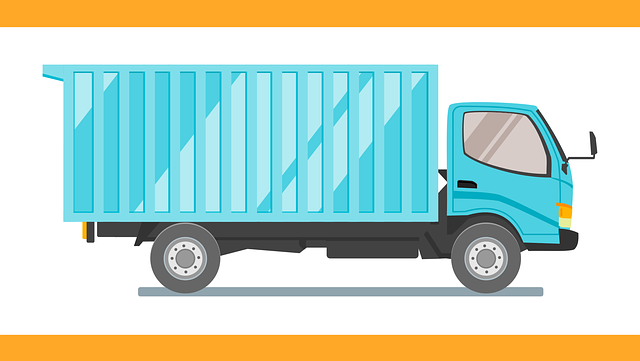Tow vehicle insurance is specialized coverage for businesses operating high-risk tow trucks and heavy-duty vehicles. It includes liability, collision, and comprehensive protection against accidents, damage, theft, vandalism, and natural disasters. Understanding key components like coverage scope, deductibles, and claims processes is crucial for fleet managers to make informed decisions, ensuring operational efficiency, financial stability, and risk mitigation. By selecting a reputable insurer with efficient claims handling and strategic risk management, tow truck operators can maximize peace of mind, minimize downtime, and enhance customer satisfaction in a competitive industry.
In the dynamic world of towing services, reliable coverage is paramount for tow truck fleets. This comprehensive guide delves into the intricacies of tow vehicle insurance, highlighting its crucial role in safeguarding businesses and drivers against unforeseen events. From comprehending policy nuances to navigating claims efficiently, this article explores why adequate tow vehicle insurance is essential. We’ll guide you through key considerations and strategies to maximize benefits, ensuring your fleet’s protection and operational continuity.
- Understanding Tow Vehicle Insurance: A Comprehensive Guide
- Why Reliable Coverage is Essential for Tow Truck Fleets
- Key Considerations for Choosing the Right Tow Vehicle Insurance Policy
- Maximizing Benefits: Navigating Claims and Risk Management Strategies
Understanding Tow Vehicle Insurance: A Comprehensive Guide

Tow vehicle insurance is a specialized form of coverage designed to protect businesses operating tow trucks and other heavy-duty vehicles. It’s more than just a standard auto policy; it’s a comprehensive guide to managing risks unique to this industry. This type of insurance protects against potential liabilities arising from accidents, damage to property, or injuries sustained during the course of towing operations.
Key components often included in tow vehicle insurance are liability coverage, which compensates for damages caused to third parties, and collision insurance, which covers repairs or replacement costs in case of an accident. Additionally, comprehensive insurance protects against various risks like theft, vandalism, or natural disasters. Understanding these policies is crucial for fleet managers as it enables them to make informed decisions, ensuring their business and assets are adequately safeguarded while navigating the complexities of tow truck operations.
Why Reliable Coverage is Essential for Tow Truck Fleets

Reliable coverage is paramount for tow truck fleets, as it directly impacts their operational efficiency and financial stability. Tow vehicles are often exposed to high-risk situations, from towing heavy loads in various weather conditions to responding to emergencies at any hour of the day or night. This makes them susceptible to accidents, damage, and legal liabilities. Comprehensive insurance coverage ensures that fleet owners have protection against these risks, minimizing financial losses and enabling swift resolution of claims.
Moreover, reliable coverage for tow truck fleets enhances their reputation and customer satisfaction. The peace of mind that comes with knowing you’re protected against unforeseen events allows fleet operators to focus on providing prompt and professional services. This is especially crucial in the competitive towing industry, where reliability and trust are key factors in building a loyal client base.
Key Considerations for Choosing the Right Tow Vehicle Insurance Policy

When selecting a tow vehicle insurance policy, several key considerations come into play. Firstly, understand your fleet’s unique needs; different vehicles may require specialized coverage due to their size, usage, and purpose. For instance, policies should cater to high-risk towing operations or off-road assistance services that demand broader protection.
Secondly, evaluate the scope of coverage offered. This includes verifying liability limits, collision deductibles, and comprehensive options tailored to your fleet’s potential risks. Reliable tow vehicle insurance should also encompass roadside assistance benefits, ensuring prompt service for vehicle breakdowns, tire changes, and other common towing scenarios. Additionally, consider the insurance provider’s reputation, claims process efficiency, and customer support reliability to ensure a seamless experience during times of need.
Maximizing Benefits: Navigating Claims and Risk Management Strategies

Maximizing benefits from tow vehicle insurance requires a strategic approach to claims and risk management. Effective navigation of claims processes ensures that fleet operators can quickly recover from incidents, minimizing downtime for their tow trucks. By understanding the nuances of different insurance policies and coverage options, operators can choose the most suitable plans tailored to their specific needs, reducing risks associated with under- or over-insurance.
Risk management strategies play a pivotal role in enhancing overall fleet safety. Regular maintenance checks, driver training programs, and implementing robust safety protocols help prevent accidents, thereby lowering claims frequency. Proactive risk management not only stabilizes insurance costs but also contributes to a culture of safety within the fleet, leading to reduced operational risks and improved financial health over time.
Reliable coverage for tow truck fleets is not just a luxury, but a necessity. As highlighted in this comprehensive guide on tow vehicle insurance, the right policy can safeguard businesses from unexpected losses, ensure smooth operations, and promote efficient risk management. By understanding the key considerations and maximizing available benefits, fleet owners can navigate claims with confidence and continue to provide essential services. Investing in quality insurance is a strategic move that reflects a commitment to both safety and success in the competitive towing industry.
